Meet the PIP Shawl:
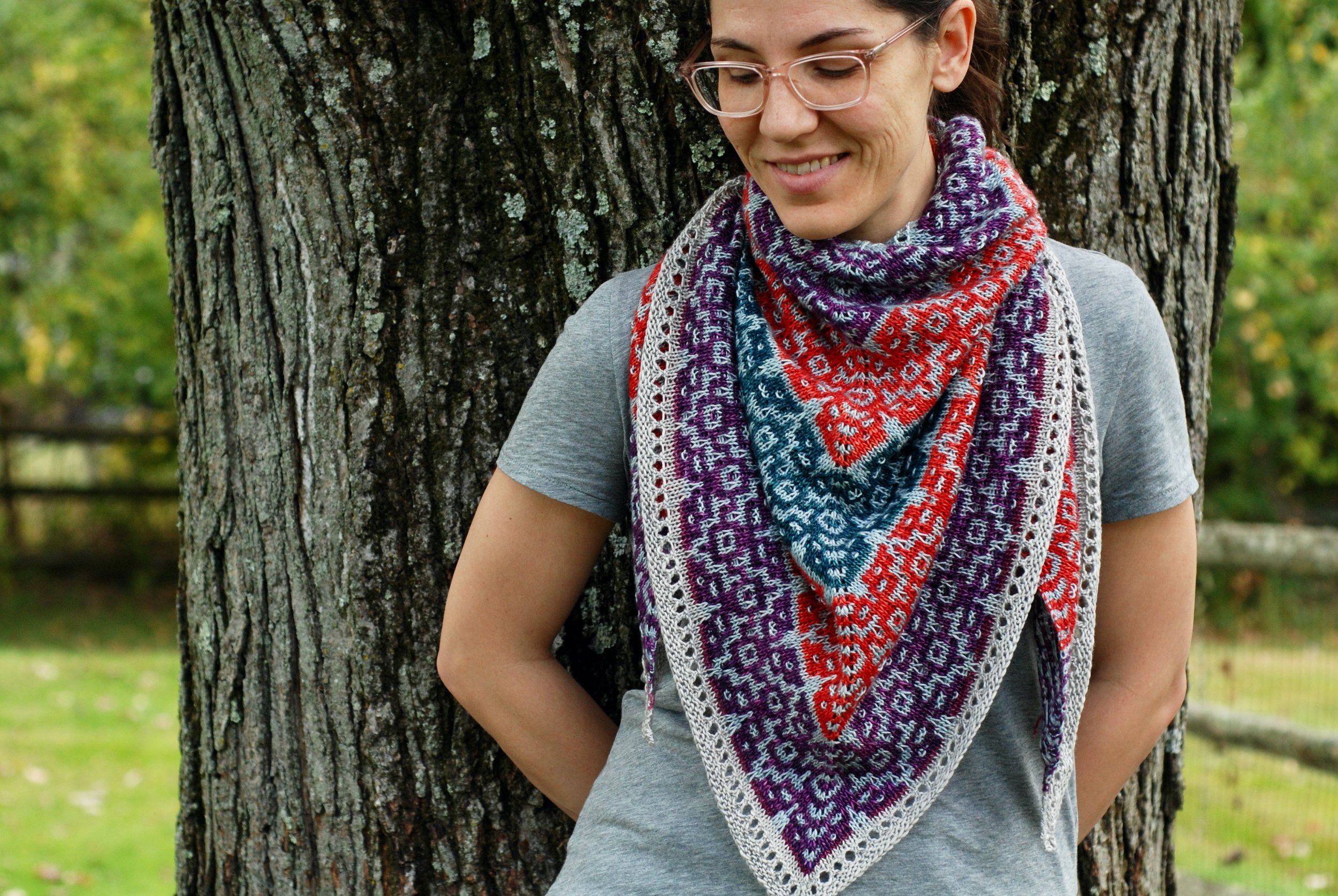
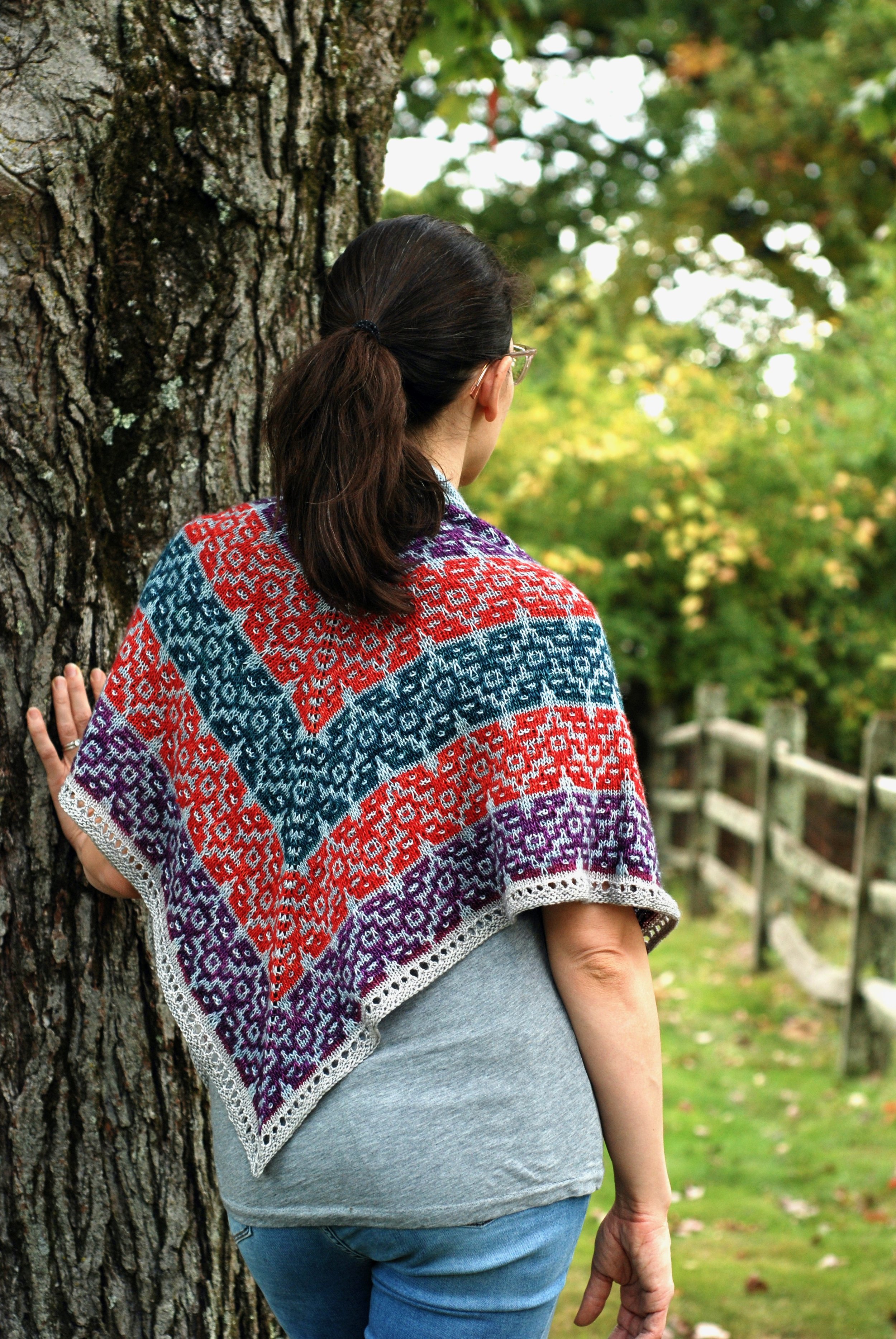
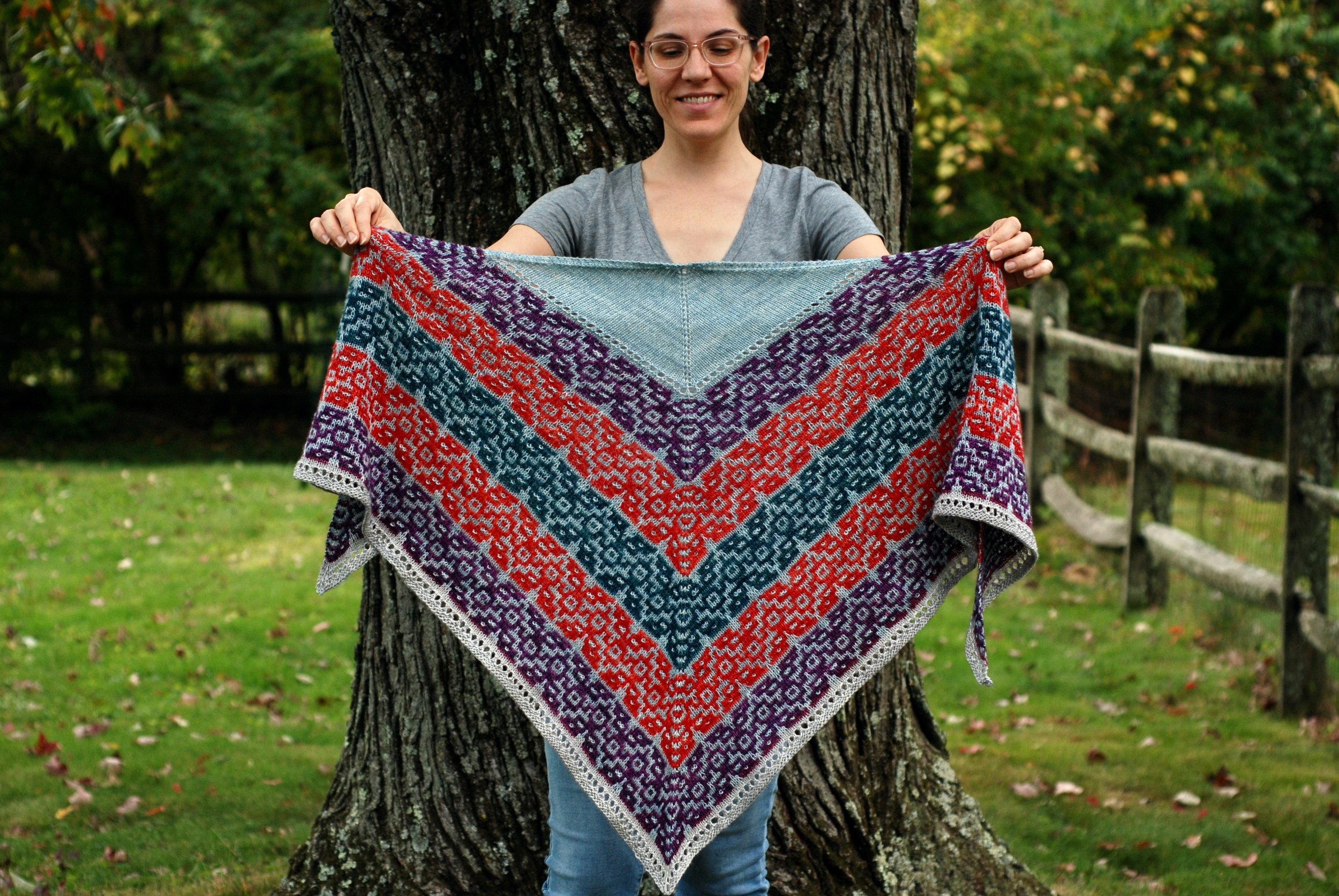
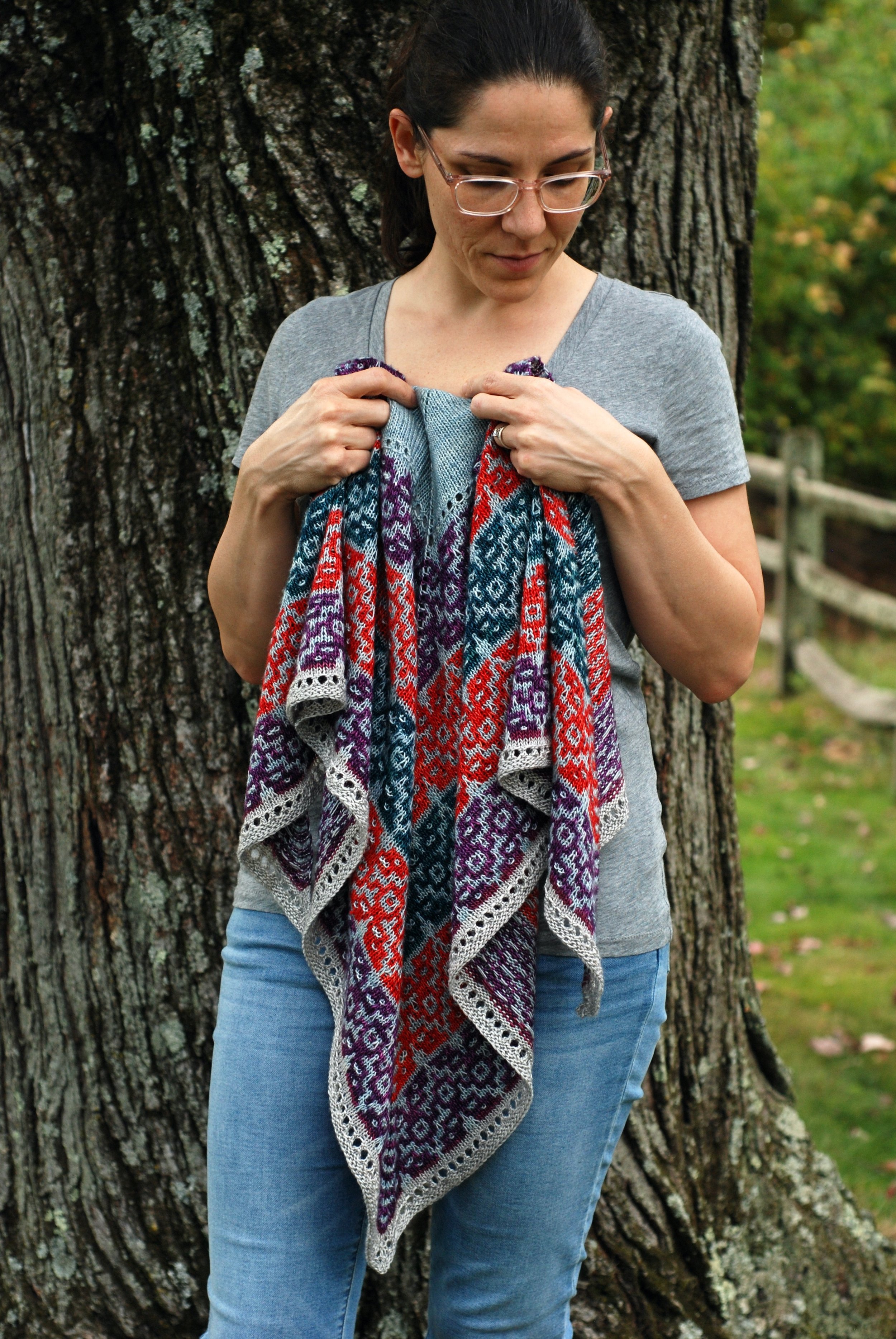
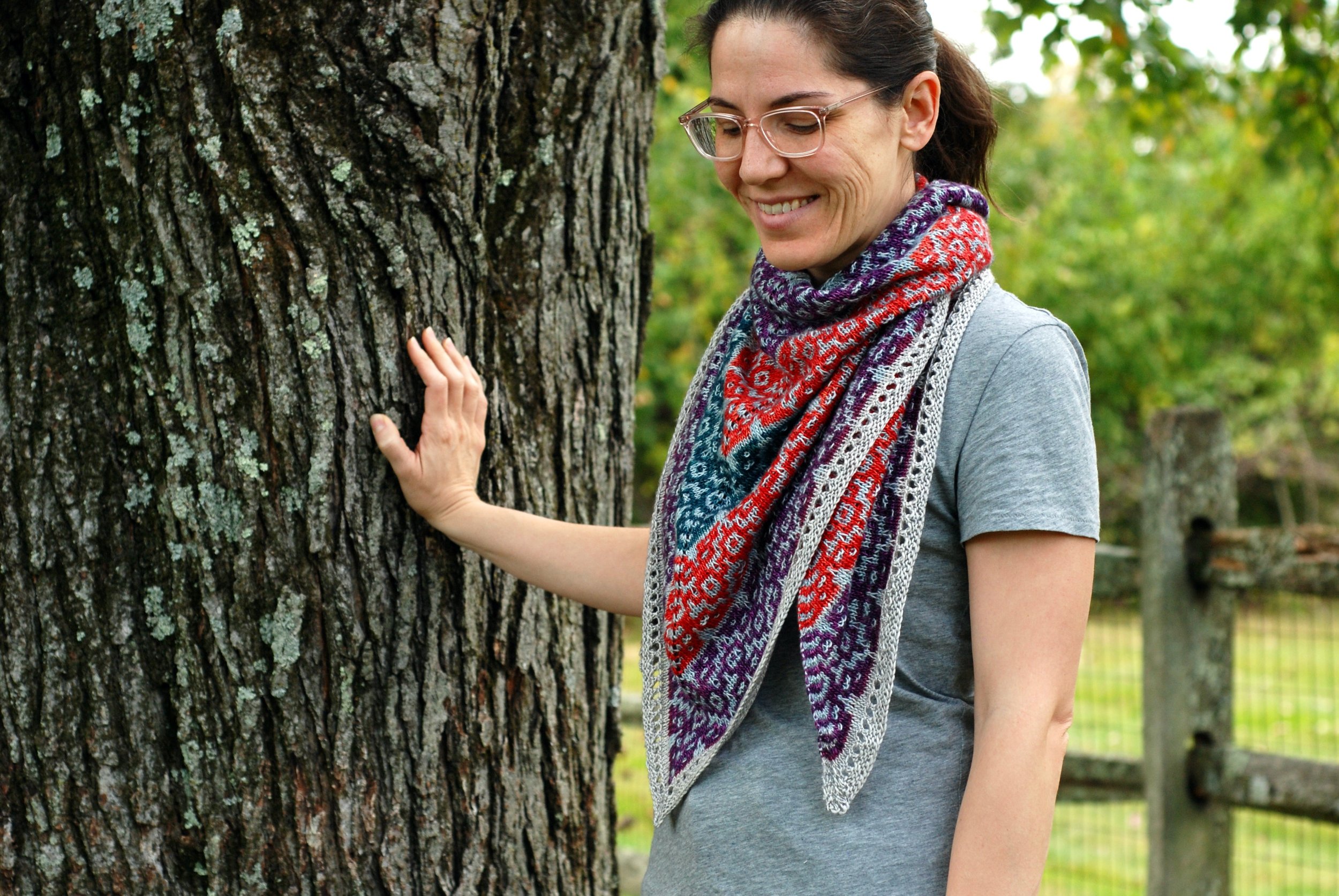
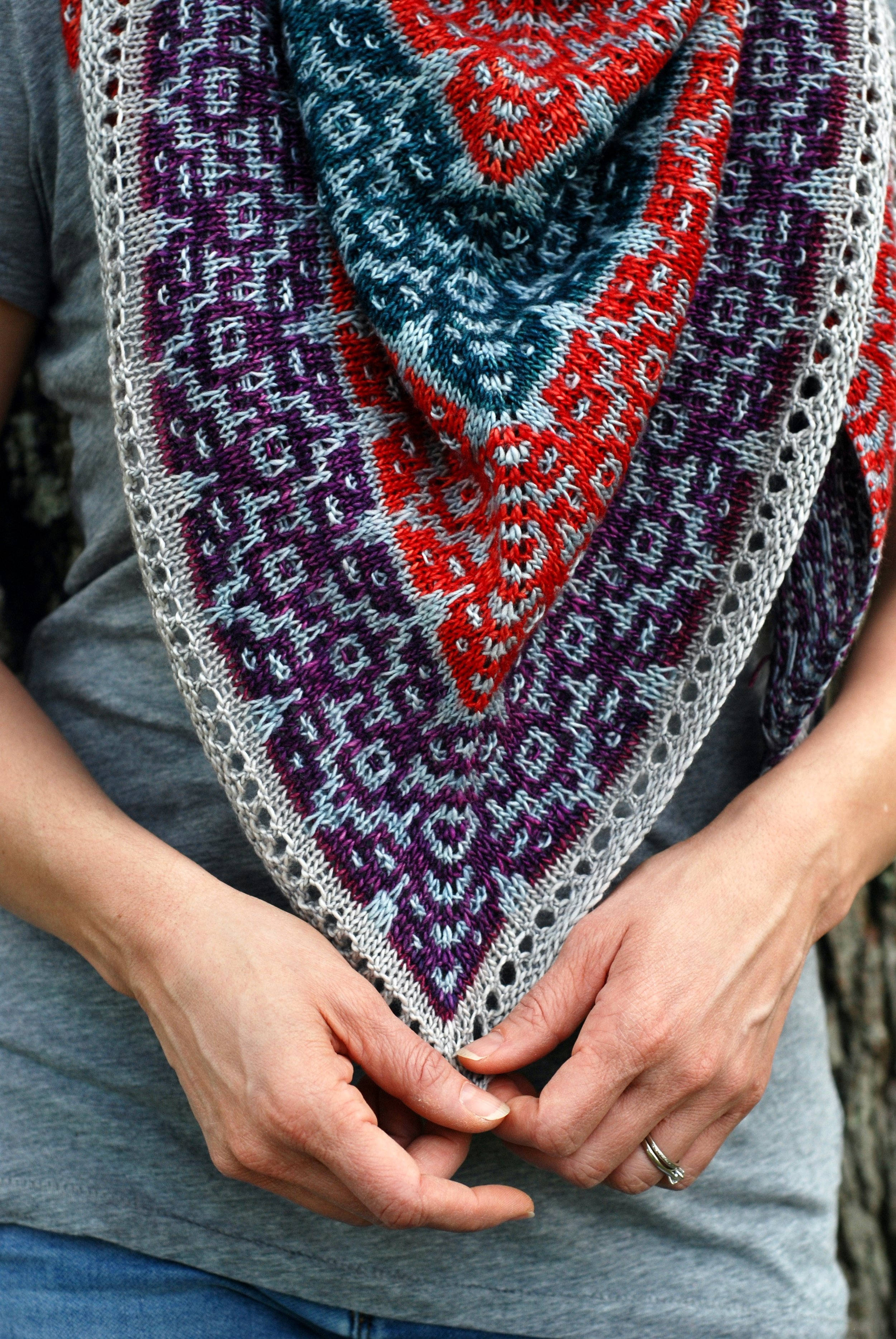
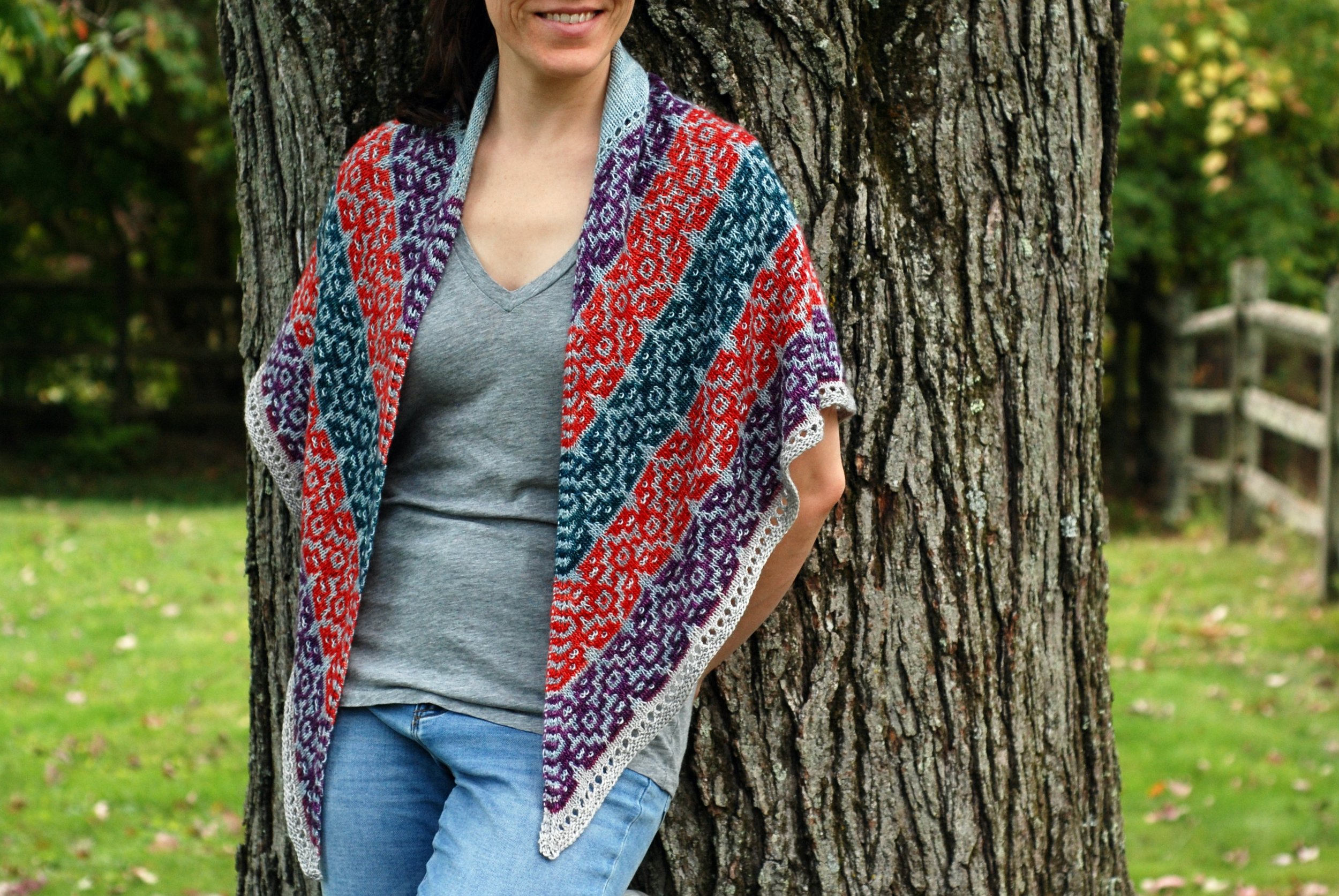
PIP is a straightforward top-down triangular shawl with a little stockinette, a couple of bands of eyelets, and a whole lot of mosaic. The banded structure means you can really show off your contrasting yarn(s): pair speckles, leftovers, or a long gradient with a solid main color for a unique version…or go with a striking two-tone approach. It’s up to you!
PIP stands for "perfectly imperfect.” Here’s the backstory: I designed the shawl to use up leftovers of one of my favorite yarns. Toward the end, I ran short of my CC1, then my MC. There are times in my life when I would have ripped the shawl out and started again with modifications in order to make it come out just right. Instead, I pulled the closest colors I had to the ones that lost yarn chicken and kept knitting.
The pattern includes written instructions as well as charts in two sizes for the mosaic. There are also tips for altering the size or swapping a mosaic band (or several) for something simpler and a link to a free planning worksheet plus tracker.
Even if your version works out perfectly, just as you'd planned, I hope PIP can serve as a reminder to you as well as to me that on the journeys that are our lives, done is often better than perfect—and that if we want something, sometimes we just have to keep going until we get it.
All the Details:
SIZE
Wingspan: 69” [175.5 cm]
Center Depth: 34” [86.5 cm]
Measurements taken after firm blocking. Shawl will shrink some with wear.
YARN
Shown in Blue Skin Yarns Oliver (75% Wool, 15% Cashmere, 10% Silk; 497 yd / 454 m per 115 g / 4.06 oz skein):
MC: 2 skeins, shown in Forgiveness
CC1: 1 skein, shown in Evensong
CC2: 1 skein, shown in Arizona
CC3: 1 skein, shown in Katsa
To substitute another fingering-weight yarn:
MC: approximately 557 yd / 510 m of fingering weight yarn
CC1: approximately 195 yd / 179 m of fingering weight yarn (or, to work the two CC1 bands in different colors, 54 yd / 50 m of one and 141 yd / 129 m of another)
CC2: approximately 173 yd / 159 m of fingering weight yarn (or, to work the two CC2 bands in different colors, 68 yd / 63 m of one and 106 yd / 97 m of the other)
CC3: approximately 99 yd / 91 m of fingering weight yarn
Totals include a 15% buffer. Using solid or tonal colorways for either your MC or your CCs will show the mosaic best.
NEEDLES
US 5 [3.75 mm] circular needles, or size needed to obtain gauge; 40" [100 cm] or longer are recommended to accommodate large number of stitches
NOTIONS
2 stitch markers, tapestry needle
GAUGE
20 stitches and 27 rows = 4” [10 cm] in stockinette stitch after firm blocking. Gauge is not crucial but will affect yardage used and final dimensions.
TECHNIQUES
Single increases and decreases, yarn overs, mosaic knitting, garter tab cast-on. Pattern includes links to more information about required stitches and techniques.
Here’s how testers described PIP: Beautiful, fun, addictive, colorful, classic, relaxing, meditative, therapeutic, changeable, engaging, "a fun way to play with colours,” interesting, gratifying, mathemagical, wearable, striking, "a clever and appealing pattern that makes a very attractive and wearable product,” a great stash buster, highly recommended, and "a warming work of art."
Want to knit PIP?
PIP is available for purchase through Ravelry and Payhip. If you are not using Ravelry at the moment but would like to have a copy in your library there, you can include your Ravelry name with your Payhip order and I will gift you a copy of the pattern on Ravelry. Questions? Please reach out.
P.S. Never miss a pattern! Sign up here for occasional updates, special offers, and (if you want them) testing calls. You can also get access to a free library of pattern extras, including a planning worksheet for Floraline!
